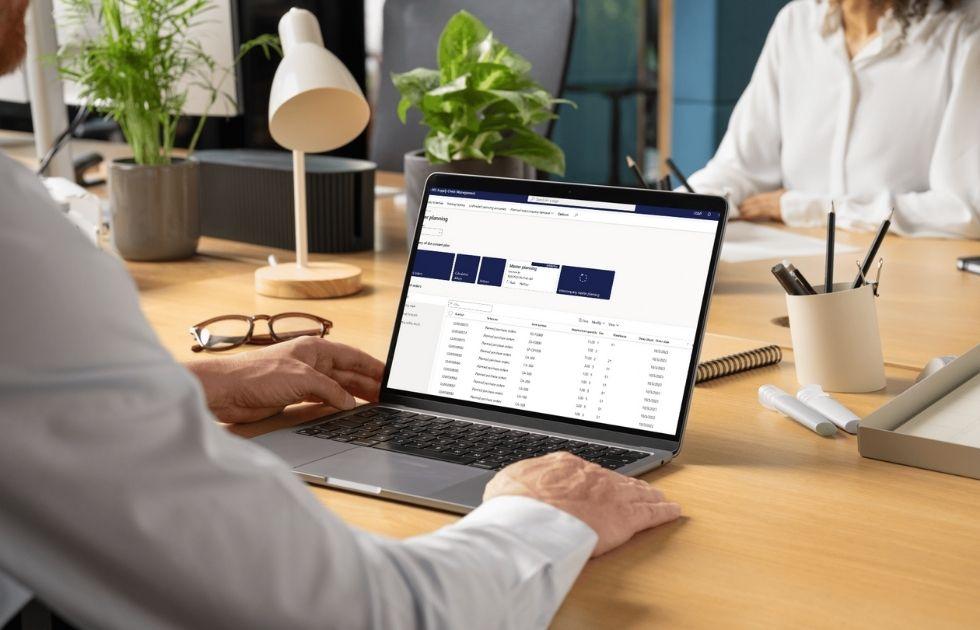In the modern digital economy, supply chain transparency, traceability, and efficiency are more critical than ever. Traditional systems, reliant on centralized databases and paper trails, are no longer capable of meeting the growing demands for speed, security, and authenticity. This is where blockchain technology is delivering a transformative impact—reshaping supply chain management for the better.
What Is Blockchain in Supply Chain Management?
Blockchain, at its core, is a decentralized ledger technology that records transactions in a secure, immutable manner. Each transaction is stored in a block, cryptographically linked to the previous one, forming a transparent and tamper-proof chain of records. When applied to supply chains, blockchain ensures data integrity, end-to-end visibility, and automated trust, eliminating the need for intermediaries.
Enhanced Transparency and Traceability Across the Supply Chain
One of the most profound impacts of blockchain is real-time visibility into the movement of goods. With blockchain:
-
Every transaction is recorded and visible to all permissioned parties.
-
Product origin, manufacturing date, certifications, and even carbon footprint data are tracked and available.
-
Counterfeit products can be easily identified and eliminated from circulation.
For industries like pharmaceuticals and luxury goods, where provenance is critical, blockchain-based tracking drastically reduces fraud and improves consumer trust.
Smart Contracts Streamline Operations
Smart contracts are self-executing code written onto the blockchain that automatically triggers actions when predefined conditions are met. In Logistics And Supply Chain Management, smart contracts enable:
-
Automated payments upon delivery confirmation.
-
Instant settlements and invoice generation.
-
Enforcement of compliance terms, such as environmental standards or delivery SLAs.
This reduces the dependency on third parties for contract enforcement and dispute resolution, saving time and resources.
Combating Fraud and Counterfeiting
Supply chain fraud costs companies billions annually. Blockchain offers a secure solution:
-
Every product unit can be tagged with a unique digital identity.
-
These identities are recorded immutably, ensuring they can't be faked or duplicated.
-
Audit trails are available instantly for all stakeholders, from manufacturers to end consumers.
This technology is especially powerful in sectors like electronics, automotive, art, and wine, where authenticity directly affects value.
Improved Inventory and Asset Management
Blockchain enables accurate, real-time asset tracking, reducing errors and inefficiencies in inventory management:
-
Digital twin technology on blockchain mirrors physical assets virtually.
-
This enables predictive analytics, reducing overstock and understock situations.
-
Integration with IoT sensors allows automatic recording of goods in transit, optimizing logistics routes and warehouse usage.
Companies can now build resilient, leaner, and more responsive supply chains.
Faster and More Secure Payments
Payment reconciliation in traditional supply chains can be painfully slow due to bank processing times and intermediary delays. Blockchain, particularly through tokenized payments and cryptocurrencies, offers:
-
Near-instantaneous transactions with global reach.
-
Reduced banking fees and conversion costs.
-
Built-in escrow functionalities for secure B2B payments.
This fosters greater liquidity across supply chains, particularly for small suppliers who often suffer from long payment cycles.
Regulatory Compliance and Auditing
Meeting compliance standards, especially in highly regulated industries, is complex and resource-intensive. Blockchain simplifies this by:
-
Automatically logging every action, forming a permanent audit trail.
-
Supporting real-time compliance checks with built-in business logic.
-
Enabling cross-border regulatory harmonization through shared ledgers accessible by customs and compliance bodies.
Blockchain thus minimizes human error and reduces compliance overheads.
Case Studies: Blockchain in Action
Walmart and Food Safety
Walmart has partnered with IBM’s Food Trust blockchain to track leafy greens from farm to shelf. What previously took 7 days now takes just 2.2 seconds, allowing faster recalls and safer food for consumers.
De Beers and Diamond Traceability
De Beers uses blockchain to track the journey of diamonds, ensuring they are conflict-free. Buyers can now see every stage of a diamond’s journey—from the mine to the retail store.
Maersk and Global Trade Digitization
Shipping giant Maersk, through its TradeLens platform (developed with IBM), leverages blockchain to streamline global container logistics. Over 150 million events are captured annually, reducing documentation time and cutting port delays.
Blockchain and Sustainability in Supply Chains
Sustainability is a growing priority, and blockchain helps companies prove their green credentials:
-
It captures and stores emissions data, renewable energy use, and ethical sourcing proof.
-
Allows third-party verification of sustainability claims.
-
Offers carbon credit trading systems powered by smart contracts.
This makes it easier to meet ESG goals and enhance brand reputation among eco-conscious consumers.
Challenges to Blockchain Adoption in Supply Chains
Despite its promise, blockchain adoption comes with challenges:
-
Integration with legacy systems can be complex and costly.
-
There are scalability concerns, especially for public blockchains.
-
Interoperability standards are still evolving.
-
Lack of skilled talent in blockchain implementation.
However, many of these barriers are being addressed by enterprise-grade platforms like Hyperledger Fabric, Ethereum, and Corda, which offer customizable, private, and scalable blockchain environments.
The Future of Blockchain in Supply Chain Management
Looking ahead, blockchain is poised to become the default backbone of digital supply chains. As 5G, IoT, and AI converge with blockchain:
-
We will witness autonomous supply chains capable of self-optimizing based on real-time data.
-
Decentralized autonomous organizations (DAOs) may govern certain supply chains, eliminating central control.
-
Token-based incentive systems could drive better performance and collaboration across global networks.
Businesses that embrace blockchain now will gain a significant competitive advantage in resilience, transparency, and customer trust.
Conclusion
Blockchain is not just a buzzword; it’s a game-changer for supply chain management. From enhancing transparency to enabling real-time payments, from fighting counterfeits to supporting sustainability, blockchain is bringing about a positive and lasting disruption. The time to adopt is now.

